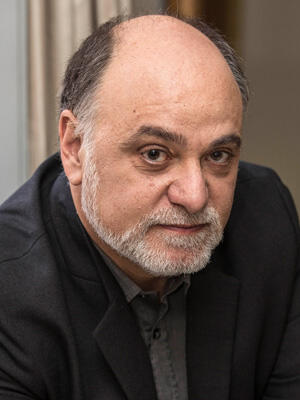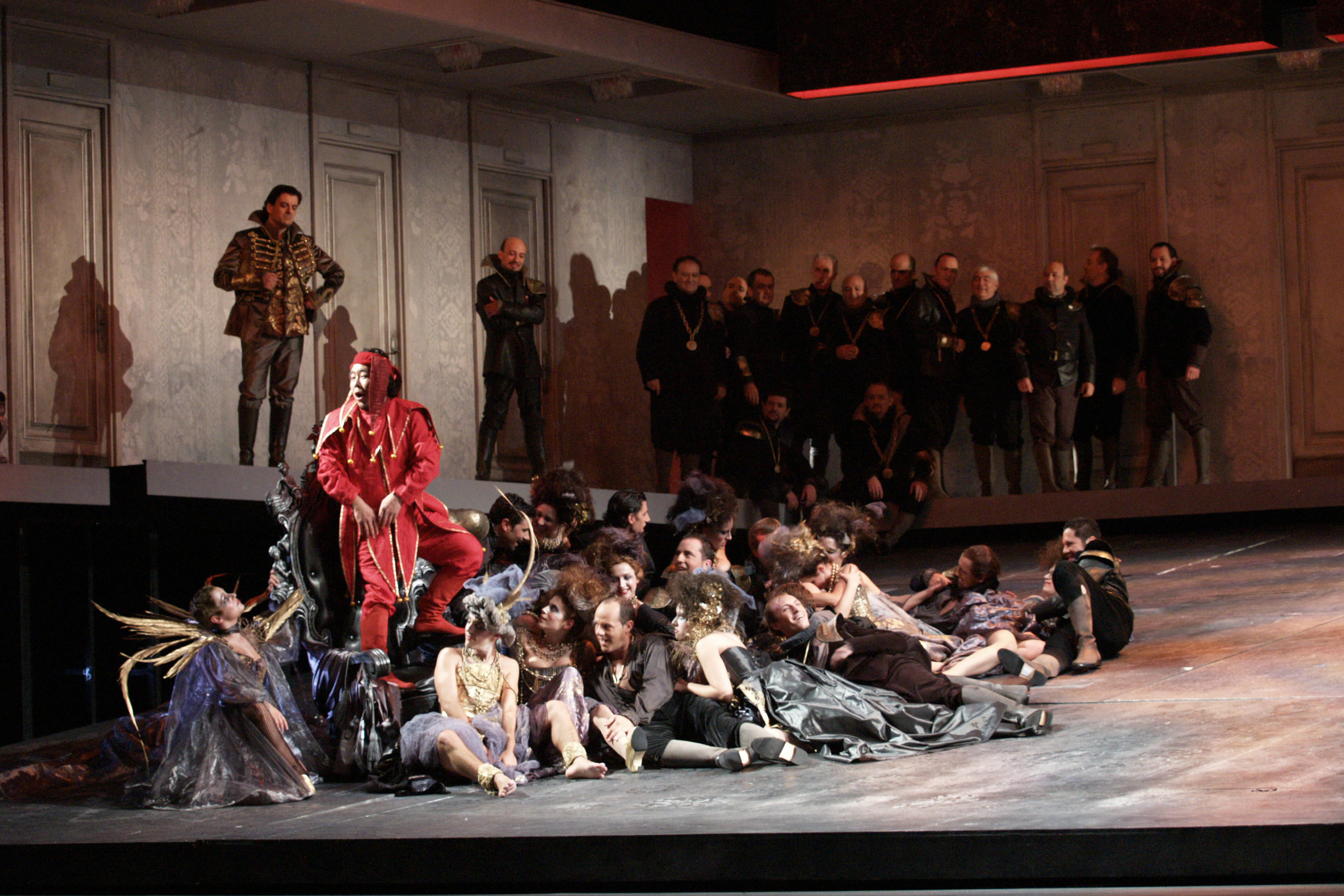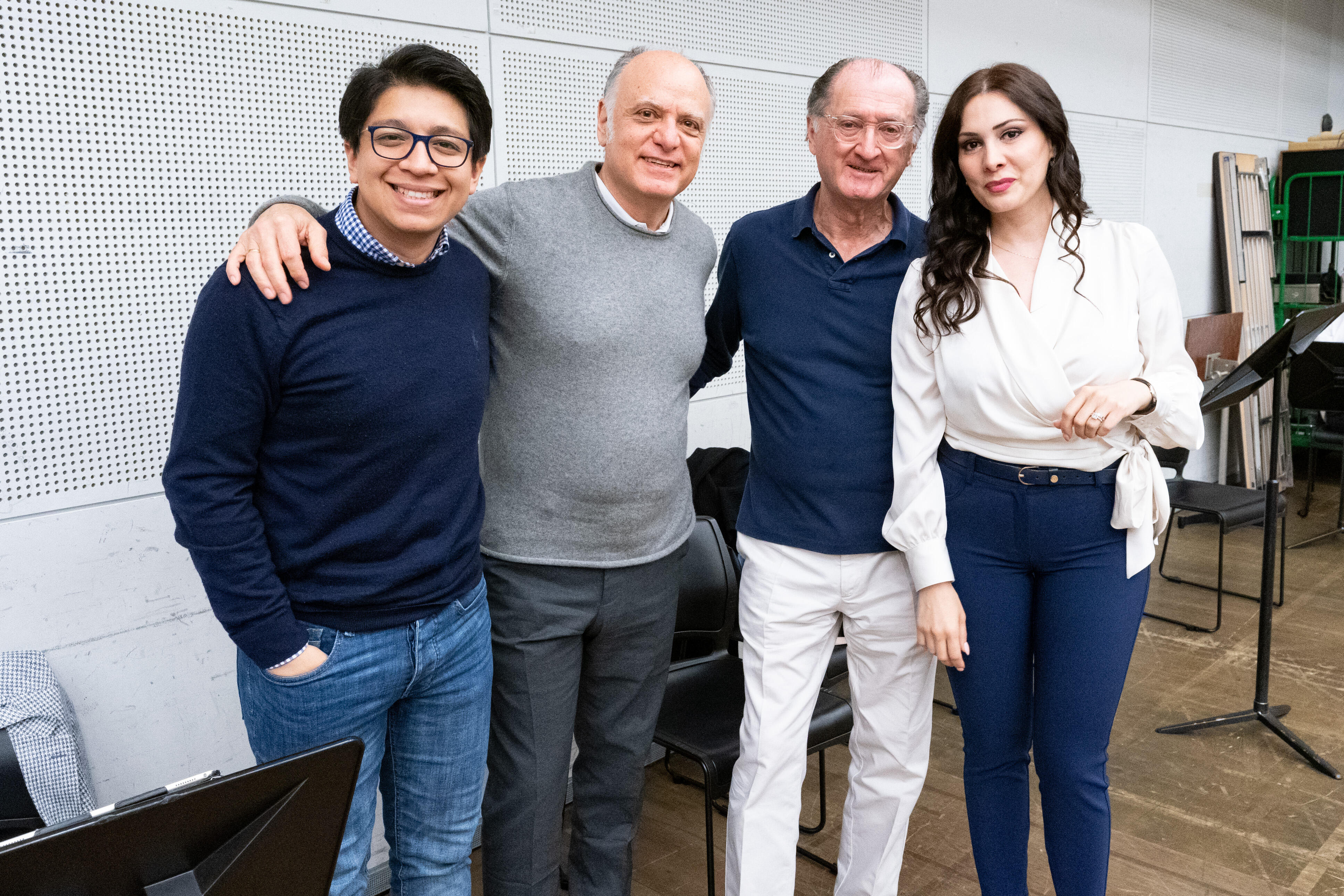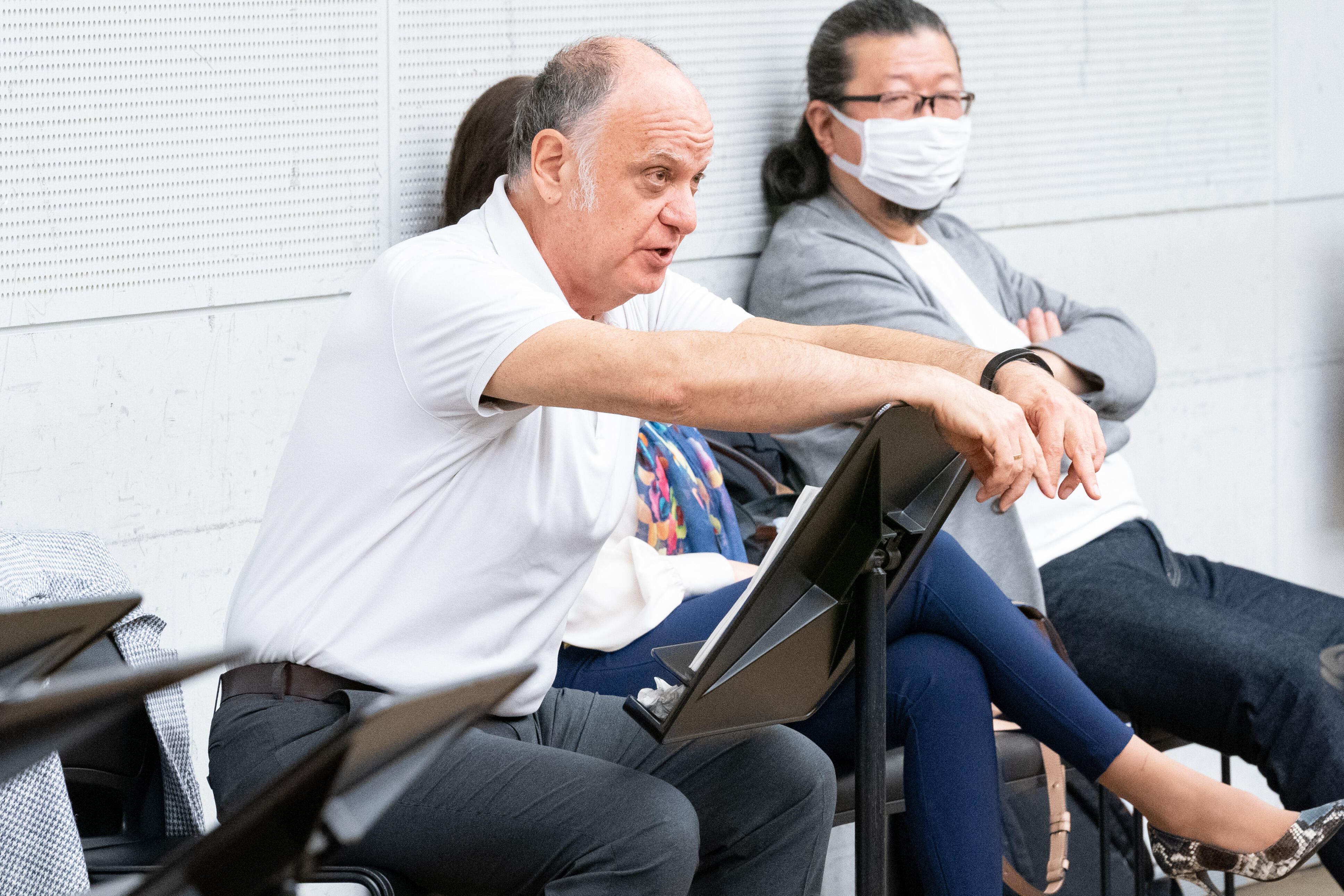Interview: Roberto Frontali on "Rigoletto"
 ―It was recently announced that you will sing the title role in NNTT's new production of Rigoletto. We are very happy.
―It was recently announced that you will sing the title role in NNTT's new production of Rigoletto. We are very happy.
I am also happy to be able to sing in Japan again. The last opera I performed in Tokyo was Tosca at the NNTT in 2015.
―In recent years, you've sang Rigoletto at the Rome Opera and the Metropolitan Opera in New York. Rigoletto is a popular work in any age. Why do you think it is so popular?
Because the subject of the opera is very modern. Rigoletto's suffering is human suffering. We humans are weak beings, and people love Rigoletto for his weaknesses. Some people may think that the characters in opera are historical figures and are not relevant to us, but their emotions are the same as our emotions today. This is particularly true of the masterpieces. In our modern society, there are countries where women are deprived of their rights by men and are left isolated. This is the same situation as Gilda, Rigoletto's daughter. She is shut up in her house and can't go out because her father doesn't wish her to. This is a form of social coercion. It can happen in our age too.
―Maybe this is why Rigoletto productions are often set in the modern age. Do you like performing in such productions?
As long as there is respect for the libretto and it isn't against the music. It doesn't work with all operas, but with Rigoletto the focus is on the psychology of the characters, so I think it's possible to set it in any age. It's the emotions that are depicted in the opera.
―Emilio Sagi's production, which will be presented at the NNTT, can be considered a traditional staging. In this case, do you try to express emotions in a way that is relevant to our age?
Of course. Sometimes the costumes and the staging can influence the performers on stage, but the essence of the character remains the same. I've worked with Emilio Sagi several times, so I know him well. I think it will be a great production. I'm also very pleased to be reunited with Maestro Benini. When I made my role debut as Rigoletto in Genoa in 2002, he was the conductor. Since then, I haven't had the opportunity to perform with him, so I'm looking forward to working with him again.

Photo courtesy of ABAO Bilbao Opera

From left to right, are Iván Ayón Rivas, Roberto Frontali, Maurizio Benini and Hasmik Torosyan.
―When performing the role of Rigoletto, which is more difficult, the acting side or the vocal technique?
I would say both. Rigoletto is one of the most complex roles in the traditional operatic repertoire. He is on stage a lot, and the role requires excellent acting skills, empathy to the role, and vocal technique. An important feature is how the character changes as the story unfolds. In Act 1, Rigoletto appears as a court jester, being jolly and making people laugh, but then he finds himself ridiculed, and subsequently he becomes the cause of his daughter's death. The human suffering that is depicted here is immense. The audience gradually gets to understand his soul, and at the end witnesses his tragedy.
―What are the difficulties on the vocal side? There are many highlights for the role of Rigoletto: the famous monologue in Act I followed by the duet with Gilda, the dramatic scene at the court in Act II, and the famous quartet leading to the finale in Act III.
Probably to know how to pace one's energy. Also, to determine in a particular scene whether one should display the voice or act using the voice. The duets with Gilda have to be sung in mezza voce [soft voice] in bel canto, and one needs technical maturity for this. Often Verdi makes the baritone sing in the passagio [the transitional range between the registers] and one has to always be careful of how to carry the voice.
―Yet Verdi wrote several important roles for the baritone.
Verdi valued the baritone voice hugely. He cast the baritone in the Romantic roles, in order to emphasize the human soul. This is because the baritone voice is the most natural male voice. He cast baritones in roles such as the protagonist's enemy or his friend, and the father in particular. The father figure is crucial in Verdi's operas: Rigoletto, La Traviata, Luisa Miller. All have contradictory personalities, but are interesting roles to play.
―You've had a long and illustrious career, singing in the major opera houses all over the world. What is the reason for your success?
One of the reasons is that I took the traditional approach to my career path. In my early years, I sang a lot of bel canto operas such as Rossini, Bellini, and Donizetti. Then as my body and vocal technique matured, I moved onto the heavier roles ― into the world of Verdi and subsequently to verismo. This is how I built my voice and career. Unfortunately few singers of today take this approach. The opera industry is no longer interested in nurturing singers slowly and it tends to exploit them while they are young. Compared to before, the fees are lower but the living costs are higher. It a difficult time for young artists.

From the rehearsal of Rigoletto
From the rehearsal of Rigoletto
―I understand that you graduated from the Sapienza University in Rome.
Yes I graduated from the faculty of economics and commerce. One day when I was singing polyphonic music in the university choir, our conductor said to me, "with a voice like yours, you should study at the music academy". So I studied at the Conservatorio di Santa Cecilia in Rome alongside my university studies. After I graduated, I thought about working in a bank and even did some job interviews, but then I got a position in the chorus of Rome Opera where I sang for a year. There I was spotted and was offered a solo role and that's how I became an opera singer.
―Did you like singing, even before you entered university?
Yes, I loved to sing from an early age. During the summer holidays, my mother would get together with other mothers and produce musical plays for us children. This may have been my first encounter with singing. Later in my youth, I had friends who loved opera, and we used to sing duets and buy records. One of the first records I bought was indeed Rigoletto: the recording with Milnes, Pavarotti, and Sutherland.
―You were already destined to sing Rigoletto! We really look forward to seeing you on stage in May/June.
I've had many opportunities to sing in Japan and have always been fascinated by the Japanese audience. I sincerely hope that we can achieve a production that will give satisfaction to the performers and the audience alike.
Interview by Inouchi Mika
Opera ❝Rigoletto❞
On Stage 18, 21, 25, 28, 31 May, 3 June.
See here for more information.

